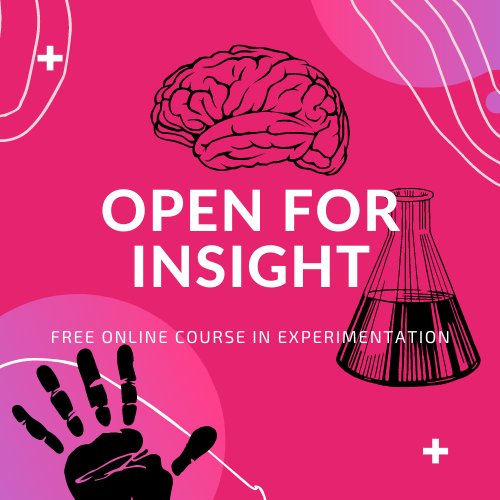
This is an online course in experimentation as a method of the empirical social sciences, directed at science newcomers and undergrads.
We cover topics such as:
- How do we know what’s true?
- How can one recognize false conclusions?
- What is an experiment?
- What are experiments good for, and what can we learn from them?
- What makes a good experiment and how can I make a good experiment?
The aim of the course is to illustrate the principles of experimental insight. We also discuss why experiments are the gold standard in empirical social sciences and how a basic understanding of experimentation can also help us deal with questions in everyday life.
But it is not only exciting research questions and clever experimental set-ups that are needed for experiments to really work well. Experiments and the knowledge gained from them should be as freely accessible and transparent as possible, regardless of the context. Only then can other thinkers and experimenters check whether the results can be reproduced. And only then can other thinkers and experimenters build their own experiments on reliable original work. This is why the online course Open for Insight also discusses how experiments and the findings derived can be developed and communicated openly and transparently.
Course Content:

In addition to a multitude of consequences for how science is implemented, this also results in consequences for how we think about science. This rethinking has already taken place among the pioneers of Open Science and is beginning to gain a foothold in large parts of the scientific community. This also means that there needs to be a place where one can acquire knowledge about transparent and open science. Open for Insight is therefore designed for students in empirical bachelor’s programmes and interested non-scientists. Future scientists are prepared to do scientific work in an open way and also to evaluate the quality of existing scientific evidence on the basis of appropriate criteria. However, openness not only means motivating the scientists themselves to be transparent, but also providing interested non-scientists with the tools they need to understand the processes of generating scientific insight. Especially in times of fake news and uncertainty from a consumer perspective, it is more important than ever to critically reflect on alleged interrelations and deal with them in an informed manner. That’s why the online course Open for Insight is open to everyone.